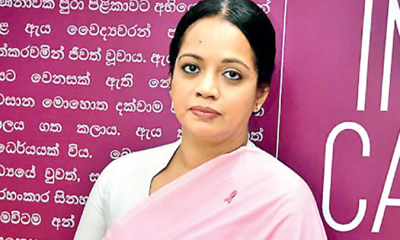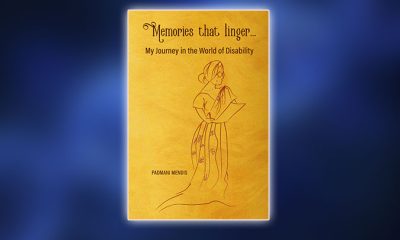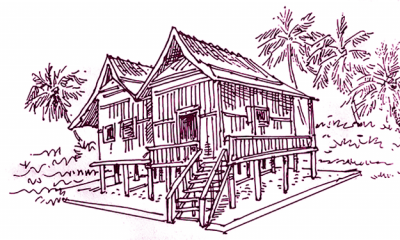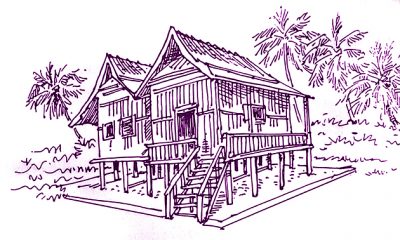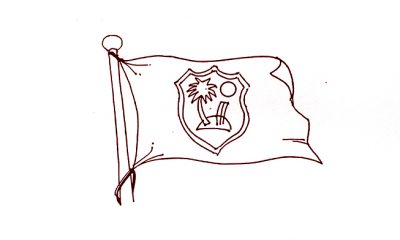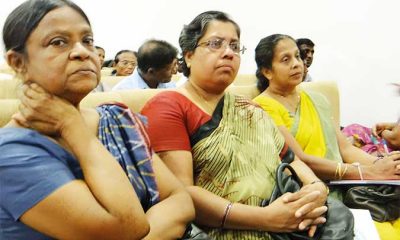Features
The death of my mother and returning home as a qualified physiotherapist
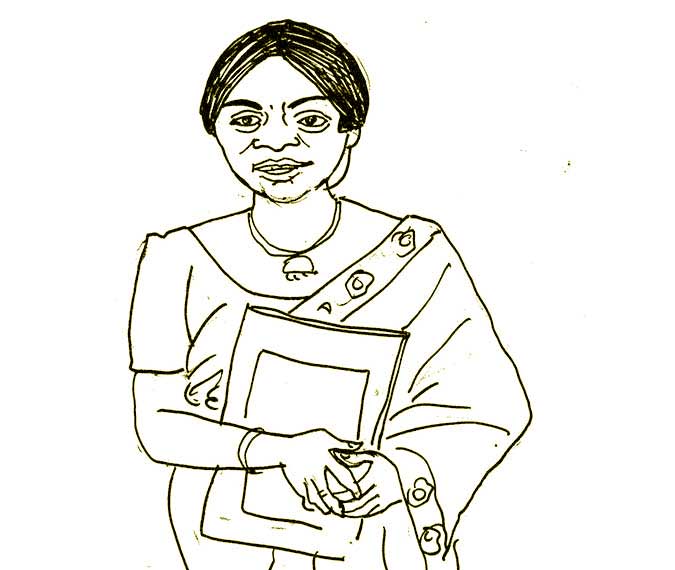
Excerpted from Memories that linger: My journey in the world of disability
by Padmani Mendis
(Continued from last week)
But I could neither send any more photographs nor write to my mother for much longer. She passed away in August of 1963. (The writer had recorded the previous week a visit to the Birmingham zoo when a professional photographer on assignment for Kodak testing a new film had shot some photos of her which he sent her. She had sent them to her mother).
We had just completed our Intermediate Exams and were awaiting the results. Meanwhile our summer vacation had come. Belmont and Bella Vista were closed. Lyda and I booked ourselves a holiday on Trafalgar Tours. It was advertised as a “Luxury tour visiting Eight European Capitals”. We were due to leave the following week. All our travel documents were with them in London. I was spending the days before departure in London with my brother Anura and sister-in-law Anula. They were expecting their first baby in September. She would be named Anusha Lakmini.
One day there was a flurry of phone calls between my brother Anura and older sister Nali in Colombo. Being older to me, they were my “Anura Aiya” and “Nali Akka”. I noticed Anura Aiya’s face being saddened. He came to me to tell me that my mother had taken ill. He told me that she was in hospital and Nali Akka thought it would be good for me to come home to see her. She was arranging my flight home. What I did not know then was that my mother had already gone. They did not tell me, knowing how I may react.
It was a Saturday morning. I said to my brother, “Oh my passport is with Trafalgar. I have to go get it before they close.” I rushed to Oxford Street where they were located. The Trafalgar people were very nice and even returned my payment. Lyda continued on the tour.
My flight was to be later that evening. I said to my brother, “I have time to take the train to Birmingham and return before I take the flight. Let me do that.” So I rushed to Birmingham and to Bella Vista. Mrs. Broom the warden kindly opened the house for me. I packed all my belongings including my books and papers into the two trunks that I had. I then told Mrs. Broom. “My mother is ill and I am going back to Colombo. I will not be coming back because I am going to look after her. I will arrange for the trunks to be shipped. Please keep them until then.” I was in time to get back to London and get the flight home.
I left on the Dutch airline KLM and had to change flights at Karachi. On that flight I was seated next to a young man from Senegal. We talked all the way. I told him of the reason I was going home. I was going to look after my mother who was ill and was not returning to Birmingham. He told me about his family and his home and why he was coming to Pakistan. I had not long to stay at the Karachi Airport before taking the flight to Colombo. That was not a long one and I was soon at Ratmalana airport.
I was one of the first out of the door and on to the gangway. And then I looked up to see many members of my family waiting for me. The airport was rather small then and they were not far away. I saw at once my sisters and other female relatives were all dressed in white. White is the colour one wears to signify a death in the family. I knew then my mother had gone.
All I recall is that I collapsed in a fit of hysteria. I recall vaguely also that the air hostesses were at my side but little else. Until I was at our home in Kollupitiya and my aunt Darla Mamma was coaxing me to drink a cup of tea. I refused to see my mother until much later. She appeared to be at peace with a kind of radiance about her. I recall little about her funeral. She was buried alongside her mother in the family vault her father had built for her mother.
There was little to keep me at home in Colombo any more. Now more than ever I needed a profession. I had written to Miss Horsfall that I had to come to Colombo quite suddenly and why. She told me I could stay as long as I liked. I stayed long enough with my family so that we could comfort each other in our immediate sorrow. And then I was back at Belmont on the last phase of the journey that would take me to being a physiotherapist.
Back to Belmont, Finals and Farewell
It was the Chartered Society of Physiotherapy (CSP) that conducted exams for all physio schools in England, Scotland and Wales. It had examination centres in a few selected locations. Students could choose where they went. All of us from Belmont chose the excitement of London and were allocated dates individually. Mine was on November 22, 1963. It was my oldest brother’s birthday and I hoped that would bring me good luck. I travelled by coach. On my way back from London I heard some sad and shocking news on the coach radio. President Kennedy had been assassinated. The inside of the coach became as gloomy as was the outside of it.
The result of the finals was as I had hoped it would be. Two days later Miss Horsfall called me to her office. She was an examiner for the CSP and had been in the hall where I was being examined by two of her eminent colleagues. At the end of the day she had asked them how it was. One had replied, “Oh it was good for me. I passed one with credit.”
She said she knew then who had earned that credit. My friend Rosemary also got a credit pass. To the CSP a credit pass meant a distinction. Miss Horsfall and Miss Jahn as well as the other tutors were all full of smiles of satisfaction. Two credit passes in one school was an exceptional achievement.
Our task of learning was over. But my memories will not allow me to leave Birmingham as yet. Not before I recall attending the first wedding among us. That was Joyce who married her Ray who she had met when we were students. Hers was the only wedding I could go to. She was married in a beautiful little church from her parent’s home in Chesterfield, Derbyshire. Joyce and I still talk often on the phone. She and her Ray live in Sydney with their children and grandchildren.
Soon after I left Birmingham, Jackie, Rosemary and Barbara wed the boyfriends they had come to know for just as long as Joyce had known hers. Barbara never went back to Jamaica to make it her home. She lives now in South Couldsdon, Surrey. A few years ago Mahin came over to London from Toronto where she lives now; I went over to London and the three of us spent two weeks in Barbara’s home. But that is jumping the gun. There are still 57 years of memories flooding my mind and queuing up to be shared with you.
We said our goodbyes and left Belmont over the next couple of days. Each on our separate way. Each to the future that we would weave for ourselves.
Getting Home
I sailed for home on the S.S. Oriana, leaving Southampton on February 4. The voyage was now two weeks, down from the three that it was on my journey out. This time we made a stopover in Naples. I went ashore to visit Pompeii. On my voyage to England, I had been able to go ashore and see the pyramids, the wonders of Egypt, still standing upright. In Pompeii, I saw what was left of its ancient city buried under the ashes of Mount Vesuvius. On the tour of Naples later, I bought six of those huge life-like dolls it is well-known for. One for each of my little nieces.
Later we sailed from Port Said at the edge of the Mediterranean Sea through the Suez Canal to Suez on the Red Sea. I had missed that on my journey out, deciding to take the land route from Suez to Port Said to catch the pyramids. And I am glad of the opportunity I was given on this return journey. Whereas the pyramids are a listed Wonder of the World, so should the Suez Canal be another Wonder if any were to be added.
It seemed that all passengers were on deck; and the shore was crowded because not often would a liner of this size be seen on the canal. The land was so close that we could almost reach out and touch those who stood by. Language was no barrier as people from different lands, those on shore and those on the sea, were trying to converse. Excitement was in the air and it was infectious.
I arrived home to my family to know once again their love and warmth. My nieces and nephews had adorned our home at Clifford Road with coloured streamers and with banners saying “Welcome Home”. They had hung balloons to create an air of festivity and joy. My dog Shadow was wagging his tail and barking as if to say in his own way, “Now don’t you leave me again.” That evening my other siblings and their families would come to see me. I really was home.
A Physiotherapist in Colombo
I was anxious to start working as a physiotherapist. The idea was, of course, to join the state Ministry of Health and work in one of their hospitals in Colombo. But that was not to be. My application was turned down. Because, it seemed, the Ministry of Health now produced their own physios through a two-year training course and gave them a certificate. Prior to this about a dozen had been sent abroad for training, and that had stopped when the new school was started.
The latter were paid more than the former. The Ministry did not wish to recruit any others with foreign qualifications. Never heard such nonsense – have you? It was obvious that someone or some people would not approve my application for reasons of their own. That was Ceylon then. Many years later when I made my application a second time, I was taken into employment on condition that I accept the same salary as those who had qualified in Sri Lanka. I had no difficulty doing that. It was more important to me that I had rewarding work.
So when I was refused employment in the government health service there was no choice but to find work in the private sector. This was easy. I found employment in a well patronised hospital in a densely populated and poor area of Colombo. It provided all who came to them with the medical or surgical care they needed. Sulaiman’s Hospital was well staffed and well run with several wards for inpatients and a busy out patient service. The owner was himself a medical practitioner and carried out a hands-on, dual-purpose job, both managing the day-to-day running of the hospital and seeing patients. He saw both the value of physio to patients and its financial value to him.
Ward patient physio could be justified, as many were admitted with strokes and fractures and similar conditions. But because of the cost, none seemed to stay long; not long enough for physio to have an effect. The “physio room” was very close to the out-patient department and I was referred a constant stream of patients with very trivial conditions, most of whom would have recovered even had they not had my services. These patients were generally very poor. They seldom returned after having had to pay the hospital for one session with me. This certainly was not the physio I had dreamed of practicing.
After a few months I was offered work in a private clinic in a completely different environment. I had no hesitation taking up this offer. This clinic had a more affluent clientele. They were comfortable paying for their treatment and appreciated the value of physio. Many were on health insurance anyway. I worked in the clinic itself. I was also sent to other private hospitals. Also, to visit homes of patients armed with a short-wave diathermy machine and an infrared lamp, both of which had seen better days.
At that time, it appeared that many doctors referring patients for physiotherapy believed that the scope of physiotherapy was limited to the use of these two machines. Besides this, my concern was also whether patients could afford it or not, physio bills did add up. These realities upset my conscience.
Features
US foreign policy-making enters critical phase as fascist threat heightens globally
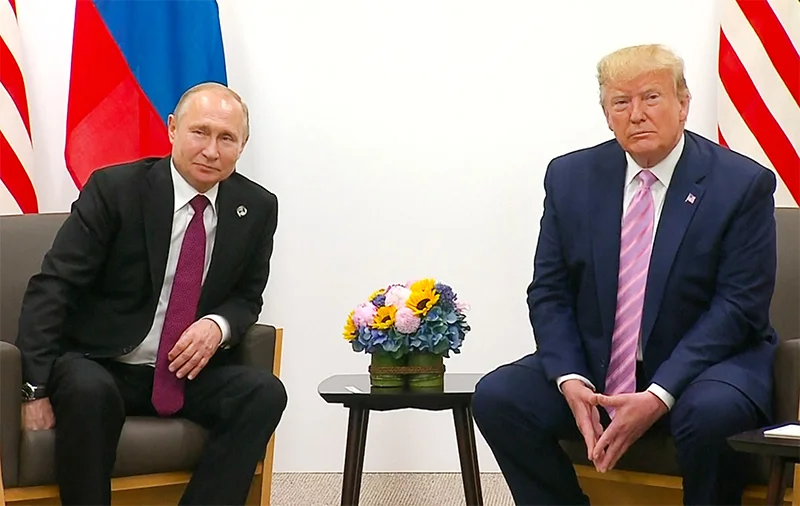
 It could be quite premature to claim that the US has closed ranks completely with the world’s foremost fascist states: Russia, China and North Korea. But there is no denying that the US is breaking with tradition and perceiving commonality of policy orientation with the mentioned authoritarian states of the East rather than with Europe and its major democracies at present.
It could be quite premature to claim that the US has closed ranks completely with the world’s foremost fascist states: Russia, China and North Korea. But there is no denying that the US is breaking with tradition and perceiving commonality of policy orientation with the mentioned authoritarian states of the East rather than with Europe and its major democracies at present.
Increasingly, it is seemingly becoming evident that the common characterization of the US as the ‘world’s mightiest democracy’, could be a gross misnomer. Moreover, the simple fact that the US is refraining from naming Russia as the aggressor in the Russia-Ukraine conflict and its refusal to perceive Ukraine’s sovereignty as having been violated by Russia, proves that US foreign policy is undergoing a substantive overhaul, as it were. In fact, one could not be faulted, given this backdrop, for seeing the US under President Donald Trump as compromising its democratic credentials very substantially.
Yet, it could be far too early to state that in the traditional East-West polarity in world politics, that the US is now squarely and conclusively with the Eastern camp that comprises in the main, China and Russia. At present, the US is adopting an arguably more nuanced approach to foreign policy formulation and the most recent UN Security Council resolution on Ukraine bears this out to a degree. For instance, the UN resolution in question reportedly ‘calls for a rapid end to the war without naming Russia as the aggressor.’
That is, the onus is being placed on only Ukraine to facilitate an end to the war, whereas Russia too has an obligation to do likewise. But it is plain that the US is reflecting an eagerness in such pronouncements to see an end to the Ukraine conflict. It is clearly not for a prolongation of the wasting war. It could be argued that a negotiated settlement is being given a try, despite current international polarizations.
However, the US could act constructively in the crisis by urging Russia as well to ensure an end to the conflict, now that there is some seemingly friendly rapport between Trump and Putin.
However, more fundamentally, if the US does not see Ukraine’s sovereignty as having been violated by Russia as a result of the latter’s invasion, we are having a situation wherein the fundamental tenets of International Law are going unrecognized by the US. That is, international disorder and lawlessness are being winked at by the US.
It follows that, right now, the US is in cahoots with those powers that are acting autocratically and arbitrarily in international politics rather than with the most democratically vibrant states of the West, although a facile lumping together of the US, Russia and China, is yet not possible.
It is primarily up to the US voting public to take clear cognizance of these developments, draw the necessary inferences and to act on them. Right now, nothing substantive could be done by the US voter to put things right, so to speak, since mid-term US elections are due only next year. But there is ample time for the voting public to put the correct perspective on these fast-breaking developments, internationally and domestically, and to put their vote to good use in upcoming polls and such like democratic exercises. They would be acting in the interest of democracy worldwide by doing so.
More specifically it is up to Donald Trump’s Republican voter base to see the damage that is being done by the present administration to the US’ standing as the ‘world’s mightiest democracy’. They need to bring pressure on Trump and his ‘inner cabinet’ to change course and restore the reputation of their country as the foremost democracy. In the absence of such action it is the US citizenry that would face the consequences of Trump’s policy indiscretions.
Meanwhile, the political Opposition in the US too needs to get its act together, so to speak, and pressure the Trump administration into doing what is needed to get the US back to the relevant policy track. Needless to say, the Democratic Party would need to lead from the front in these efforts.
While, in the foreign policy field the US under President Trump could be said to be acting with a degree of ambivalence and ambiguity currently, in the area of domestic policy it is making it all to plain that it intends to traverse a fascistic course. As has been proved over the past two months, white supremacy is being made the cardinal principle of domestic governance.
Trump has made it clear, for example, that his administration would be close to ethnic chauvinists, such as the controversial Ku Klux Klan, and religious extremists. By unceremoniously rolling back the ‘diversity programs’ that have hitherto helped define the political culture of the US, the Trump administration is making no bones of the fact that ethnic reconciliation would not be among the government’s priorities. The steady undermining of USAID and its main programs worldwide is sufficient proof of this. Thus the basis has been adequately established for the flourishing of fascism and authoritarianism.
Yet, the US currently reflects a complex awareness of foreign policy questions despite having the international community wondering whether it is sealing a permanent alliance with the main powers of the East. For instance, President Trump is currently in conversation on matters in the external relations sphere that are proving vital with the West’s principal leaders. For example, he has spoken to President Emmanuel Macron of France and is due to meet Prime Minister Keir Starmer of the UK.
Obviously, the US is aware that it cannot ‘go it alone’ in resolving currently outstanding issues in external relations, such as the Ukraine question. There is a clear recognition that the latter and many more issues require a collaborative approach.
Besides, the Trump administration realizes that it cannot pose as a ‘first among equals’, given the complexities at ground level. It sees that given the collective strength of the rest of the West that a joint approach to problem solving cannot be avoided. This is particularly so in the case of Ukraine.
The most major powers of the West are no ‘pushovers’ and Germany, under a possibly Christian Democratic Union-led alliance in the future, has indicated as much. It has already implied that it would not be playing second fiddle to the US. Accordingly, the US is likely to steer clear of simplistic thinking in the formulation of foreign policy, going forward.
Features
Clean Sri Lanka – hiccups and remedies
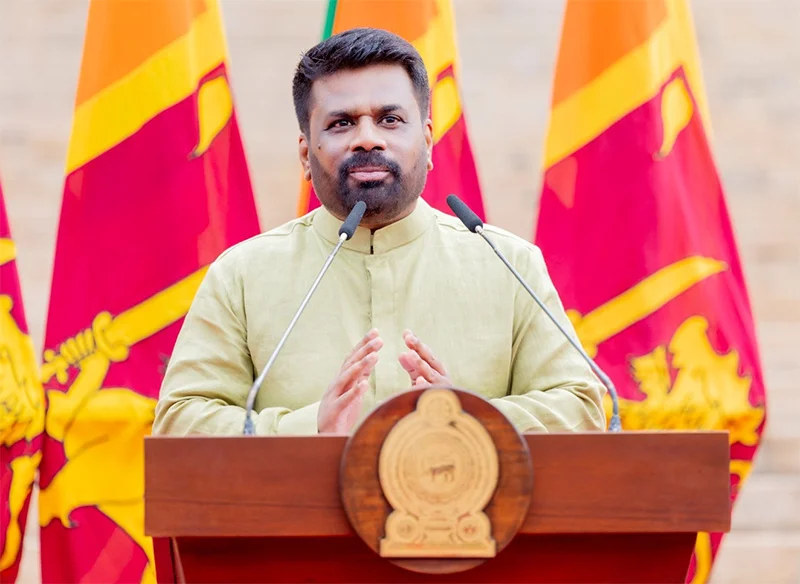
by Upali Gamakumara,
Upali.gamakumara@gmail.com
The Clean Sri Lanka (CSL) is a project for the true renaissance the NPP government launched, the success of which would gain world recognition. It is about more than just cleaning up places. Its broader objectives are to make places attractive and happy for people who visit or use services in the country, focusing more on the services in public institutions and organisations like the SLTB. Unfortunately, these broader objectives are not apparent in its theme, “Clean Sri Lanka,” and therefore there is a misconception that keeping the environment clean is the main focus.
People who realise the said broader objectives are excited about a cleaner Sri Lanka, hoping the President and the government will tackle this, the way they are planning to solve other big problems like the economy and poverty. However, they do not see themselves as part of the solution.
From the management perspective, the CSL has a strategic plan that is not declared in that manner. When looking at the government policies, one can perceive its presence, the vision being “A Prosperous Nation and a Beautiful Life,” the mission “Clean Sri Lanka” and the broader objectives “a disciplined society, effective services, and a cleaner environment.” If the government published these as the strategy, there would have been a better understanding.
Retaining the spirit and expectations and continuing the ‘Clean Sri Lanka’ project is equally important as much as understanding its deep idea. For this, it needs to motivate people, which differs from those motivators that people push to achieve selfish targets. The motivation we need here is to evolve something involuntarily, known as Drivers. Drivers push for the survival of the evolution or development of any entity. We see the absence of apparent Drivers in the CSL project as a weakness that leads to sporadic hiccups and free flow.
Drivers of Evolution
Drivers vary according to the nature of envisaged evolution for progress. However, we suggest that ‘the force that pushes anything to evolve’ would fit all evolutions. Some examples are: ‘Fitting to survival’ was the driver of the evolution of life. Magnetism is a driver for the unprecedented development of physics – young Einstein was driven to enquire about the ‘attraction’ of magnets, eventually making him the greatest scientist of the 20th century.
Leadership is a Driver. It is essential but do not push an evolution continually as they are not sprung within a system involuntarily. This is one of the reasons why CSL has lost the vigour it had at its inception.
CSL is a teamwork. It needs ‘Drives’ for cohesion and to push forward continually, like the Quality Improvement Project of the National Health Service (NHS) in England. Their drivers are outlined differently keeping Aims as their top driver and saying: Aims should be specific and measurable, not merely to “improve” or “reduce,” engage stakeholders to define the aim of the improvement project and a clear aim to identify outcome measures.
So, we think that CSL needs Aims as defined by NHS, built by stakeholder participation to help refine the project for continuous evolution. This approach is similar to Deming’s Cycle for continual improvement. Further, two more important drivers are needed for the CSL project. That is Attitudinal Change and Punishment. We shall discuss these in detail under Psychoactive Environment (pSE) below.
Aside from the above, Competition is another driver in the business world. This helps achieve CSL objectives in the private sector. We can see how this Driver pushes, with the spread of the Supermarket chains, the evolution of small and medium retail shops to supermarket level, and in the private banks and hospitals, achieving broader objectives of CSL; a cleaner environment, disciplined behaviuor, efficient service, and the instillation of ethics.
The readers can now understand the importance of Drivers pushing any project.
Three Types of Entities and Their Drives
We understand, that to do the transformation that CSL expects, we need to identify or adopt the drivers separately to suit the three types of entities we have in the country.
Type I entities are the independent entities that struggle for their existence and force them to adopt drivers involuntarily. They are private sector entities, and their drivers are the commitment of leadership and competition. These drivers spring up involuntarily within the entity.
Type II are the dependent entities. To spring up drivers of these entities commitment of an appointed trustee is a must. Mostly in state-owned entities, categorized as Boards, Authorities, Cooperations, and the like. Their drivers do not spring up within or involuntarily unless the leader initiates. The Government of a country also falls into this type and the emergence of drivers depends on the leader.
Type III entities have neither independent nor dependent immediate leader or trustee. They are mostly the so-called ‘Public’ places like public-toilets, public-playgrounds, and public-beaches. No team can be formed as these places are open to any, like no-man-land. Achieving CSL objectives at these entities depends on the discipline of the public or the users.
Clean Sri Lanka suffers the absence of drivers in the second and third types of entities, as the appointed persons are not trustees but temporary custodians.
The writer proposes a remedy to the last two types of entities based on the theory of pSE explained below.
Psychoactive Environment (pSE) –
The Power of Customer Attraction
Research by the writer introduced the Psychoactive Environment (pSE) concept to explain why some businesses attract more customers than others who provide the same service. Presented at the 5th Global Conference on Business and Economics at Cambridge University in 2006, the study revealed that a “vibe” influences customer attraction. This vibe, termed pSE, depends on Three Distinct Elements, which can either attract or repel customers. A positive pSE makes a business more attractive and welcoming. This concept can help develop Drivers for Type II and III entities.
pSE is not an all-inclusive solution for CSL, but it lays the foundation for building Drivers and motivating entities to keep entrants attractive and contented.
The structure of the pSE
The three distinct Elements are the Occupants, Systems, and Environment responsible for making a pSE attractive to any entity, be it a person, institution, organization, or county. Each of these elements bears three qualities named Captivators. These captivators are, in simple terms, Intelligent, Nice, and Active in their adjective forms.
pSE theorizes that if any element fails to captivate the entrant’s mood by not being Intelligent, Nice, or Active, the pSE becomes negative, repelling the entrant (customer). Conversely, the positive pSE attracts the entrants if the elements are Intelligent, Nice, and Active.
For example, think person who comes to a Government Office for some service. He sees that the employees, service, and environment are intelligent, nice, and active, and he will be delighted and contented. He will not get frustrated or have any deterioration in national productivity.
The Significance of pSE in CSL
The Elements and the Captivators are universal for any entity. Any entity can easily find its path to Evolution or Progress determined by these elements and captivators. The intangible broader objectives can be downsised to manageable targets by pSE. Achievements of these targets make the entrants happy and enhance productivity – the expectation of Clean Sri Lanka (CSL).
From the perspective of pSE, now we can redefine the Clean Sri Lanka project thus:
To make the Elements of every entity in Sri Lanka: intelligent, Nice, and Active.
How Would the pSE be A Remedy for The Sporadic Hiccups?
We have seen two possible reasons for sporadic setbacks and the discontinuity of some projects launched by the CSL. They are:
The absence of involuntary Drivers for evolvement or progress
Poor attitudes and behaviors of people and leaders
Remedy for the Absence of Drivers
Setting up a system to measure customer or beneficiary satisfaction, and setting aims can build Drivers. The East London NHS principles help build the Aims that drive type II & II entities. The system must be designed to ensure continual improvement following the Deming Cycle. This strategy will create Drivers for Type I & II entities.
This process is too long to explain here therefore we refrain from detailing.
Attitudinal Change
The most difficult task is the attitudinal and behavioural change. Yet it cannot be postponed.
Punishment as a strategy
In developed countries, we see that people are much more disciplined than in the developing countries. We in developing countries, give credit to their superior culture, mitigating ours as rudimental. The long experience and looking at this affair from a vantage point, one will understand it is not the absolute truth. Their ruthless wars in the past, rules, and severe punishment are the reasons behind this discipline. For example, anyone who fails to wear a car seatbelt properly will be fined 400 AUD, nearly 80,000 LKR!
The lesson we can learn is, that in Sri Lanka, we need strong laws and strict punishment together with a type of strategic education as follows.
Psychological Approach as a Strategy
The psychological theory of attitude formation can be used successfully if some good programmes can be designed.
All attitude formations start with life experience. Formed wrong or negative attitudes can be reversed or instilled with correct attitudes by exposure to designed life experiences. The programmes have been developed using the concepts of Hoshin Kanri, Brainstorming, Cause-and-Effect analysis, and Teamwork, in addition to London NTS Quality Improvement strategies.
The experience and good responses we received for our pSE programs conducted at several institutions prove and have built confidence in our approach. However, it was a time, when governments or organisations did not pay much attention to cultural change as CSL expects in the country.
Therefore, we believe this is a golden opportunity to take the CSL supported by the pSE concept.
Features
Visually impaired but ready to do it their way
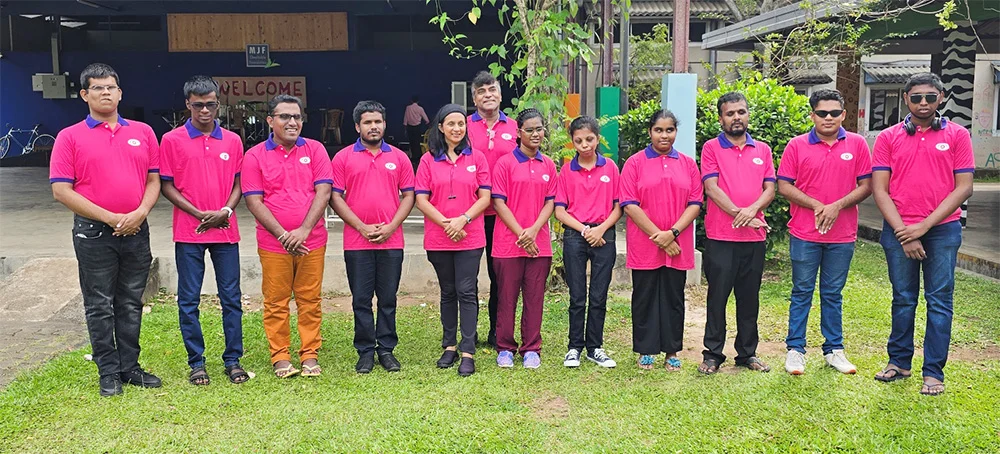
 Although they are visually impaired youngsters, under the guidance of renowned musician Melantha Perera, these talented individuals do shine bright … hence the name Bright Light.
Although they are visually impaired youngsters, under the guidance of renowned musician Melantha Perera, these talented individuals do shine bright … hence the name Bright Light.
Says Melantha: “My primary mission is to nurture their talent and ensure their sustainable growth in music, and I’m thrilled to announce that Bright Light’s first public performance is scheduled for 7th June, 2025. The venue will be the MJF Centre Auditorium in Katubadda, Moratuwa.”
Melantha went on to say that two years of teaching, online, visually impaired youngsters, from various parts of the island, wasn’t an easy ride.
There were many ups and downs but Melantha’s determination has paid off with the forming of Bright Light, and now they are gearing up to go on stage.
According to Melantha, they have come a long way in music.
“For the past few months, we have been meeting, physically, where I guide them to play as a band and now they show a very keen interest as they are getting to the depth of it. They were not exposed to English songs, but I’ve added a few English songs to widen their repertoire.
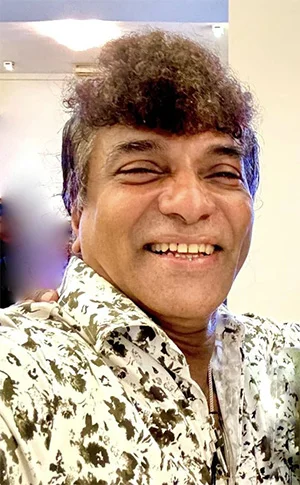
Melantha Perera: Invented a notation
system for the guitar
“On 7th June, we are opening up for the public to come and witness their talents, and I want to take this product island-wide, giving the message that we can do it, and I’m hoping to create a database so there will be a following. Initially, we would like your support by attending the show.”
Melantha says he didn’t know what he was getting into but he had confidence teaching anyone music since he has been in the scene for the past 45 years. He began teaching in 2015,
“When I opened my music school, Riversheen School of Music, the most challenging part of teaching was correcting tone deaf which is the theoretical term for those who can’t pitch a note, and also teaching students to keep timing while they sang and played.”
Melantha has even invented a notation system for the guitar which he has named ‘MelaNota’. He has received copyrights from the USA and ISO from Australia, but is yet to be recognised in Sri Lanka.
During Covid-19, Melantha showcased MelaNota online and then it was officially launched with the late Desmond De Silva playing one of his tunes, using MelaNota.
Melantha says that anyone, including the visually impaired, can play a simple melody on a guitar, within five minutes, using his notation system.
“I’ve completed the system and I’m now finalising the syllabus for the notation system.”
Melantha has written not only for the guitar, but also for drums, keyboards, and wind instruments.
For any queries, or additional information, you could contact Melantha at 071 454 4092 or via email at thebandbrightlight@gmail.com.
-

 Business4 days ago
Business4 days agoSri Lanka’s 1st Culinary Studio opened by The Hungryislander
-

 Sports4 days ago
Sports4 days agoHow Sri Lanka fumbled their Champions Trophy spot
-
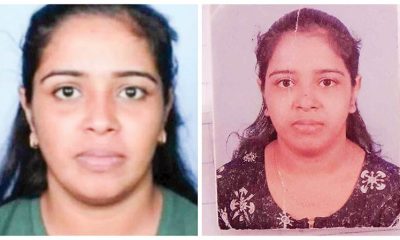
 News6 days ago
News6 days agoKiller made three overseas calls while fleeing
-

 News6 days ago
News6 days agoSC notices Power Minister and several others over FR petition alleging govt. set to incur loss exceeding Rs 3bn due to irregular tender
-

 Features5 days ago
Features5 days agoThe Murder of a Journalist
-
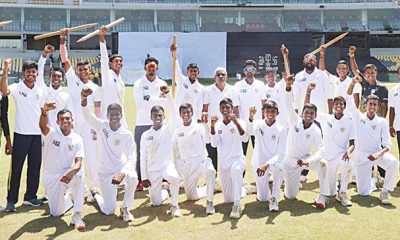
 Sports5 days ago
Sports5 days agoMahinda earn long awaited Tier ‘A’ promotion
-
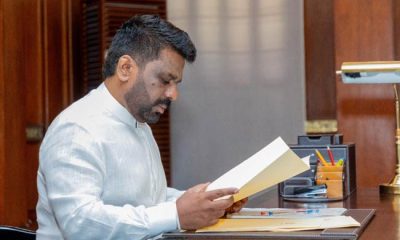
 Features4 days ago
Features4 days agoExcellent Budget by AKD, NPP Inexperience is the Government’s Enemy
-

 News5 days ago
News5 days agoMobile number portability to be introduced in June


